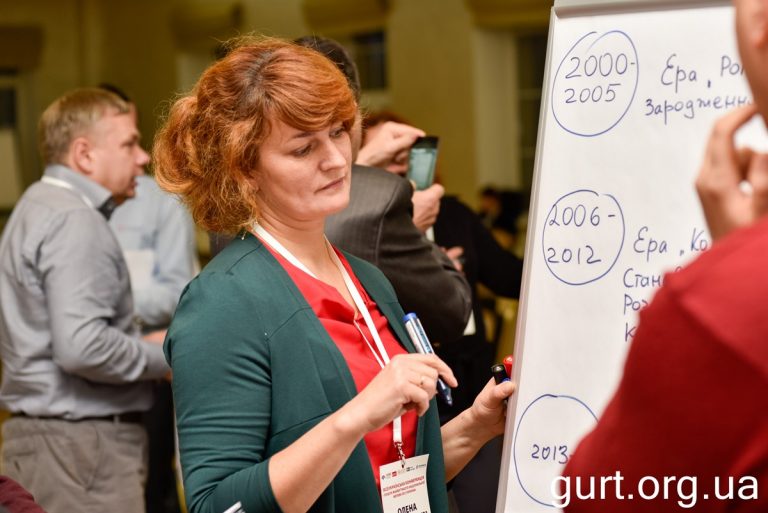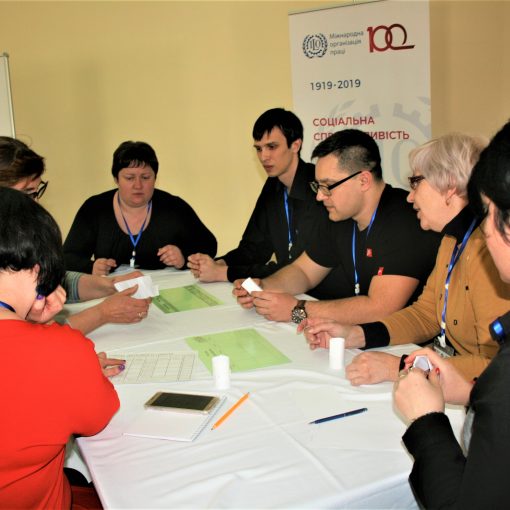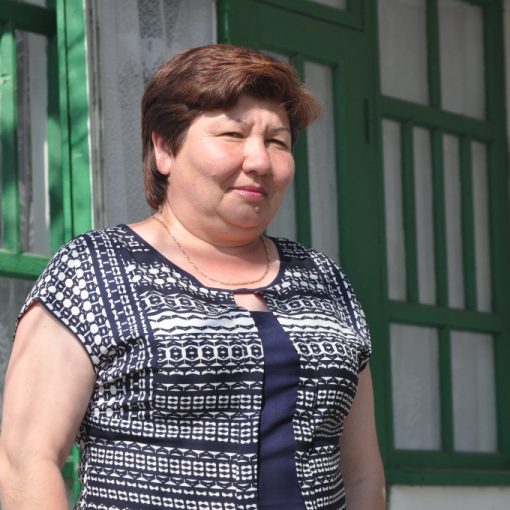From 30 November to 2 December 2017 Ukraine hosted a conference ‘Future of the National Network of Ukrainian Civil Society Organizations’ organized by the GURT Resource Center in cooperation with the Kyiv office of the Kennan Institute, the Estonian NGO Network (NENO) and the Ukrainian Catholic University, with the financial support of the Governments of Sweden and Estonia. It has united more than 80 participants from Ukraine, as well as guests from abroad. Mostly the event gathered leaders of CSOs — leaders of numerous public organizations and charitable foundations.

The network of civil society organizations in Ukraine can be an important channel of horizontal communication and a mechanism for the introduction of innovations. The network will increase the capacity of individual organizations that are part of it, will help to influence the authorities, donors and society. The network will strengthen each participant and provide opportunities for growth and efficiency gains. The network will allow Ukrainian civil society to become a parity participant in dialogue with central and local authorities, as well as national and international donor organizations.
The facilitator of the meeting was Joe Topfer, a consultant on the development of organizations and management. The work at the conference was carried out according to its methodology: the format provided for analysis of the past and present and the search for the future, the participants worked in small groups and made general presentations, debated and produced ideas. During three days, the conference guests had the opportunity to meet and talk, both in working groups and in person. And in the end — to develop a common vision of the national network of civil society organizations in Ukraine
At the beginning of the first day of the conference, the participants focused on the past (from 2000 to the present): they recalled both personal experience and important events in Ukraine and in the world. The result of the work was a large «panel», where were written Obama and Trump, September 11 and the 2008 crisis, «Kuchma away» and the war between Russia and Georgia, the enlargement of the European Union and the war between Ukraine and Russia.
After the participants spoke about the results of the analysis of the past of civil society in Ukraine and the influence of global factors, they moved to the present. The next task of participants was to think in the format of «brainstorming» to remember the actual social trends that influence the formation of a national CSOs network in Ukraine and to determine their focus and importance. «Map of reflection» was the result of the general intellectual cooperation of the participants.

On the second day, the participants continued to analyze the present and ponder how the trends they identified yesterday are related to the activities of their CSOs. Then the participants continued their reflections on their work in terms of achievements and disadvantages. As it turned out, representatives of CSOs are proud of their trust in them, the results of their own activities, perseverance, volunteering, experience, the presence of bonds. But they were disappointed with the fact that cooperation with the authorities is problematic, society is passive, reforms are ineffective, NGOs are not well qualified and professional. The participants also mentioned that: in their



Having completed the analysis, the conference guests went to the actual formation of future scenarios. This they did in the last, third, day of the event. The search for the desired scenarios for the development of a national CSO network in Ukraine took place in particular in a creative way: participants were invited to imagine that on the calendar of November 30, 2020, and all their dreams come true. The last step was to coordinate all the desirable scenarios by collective work and to summarize the results in the form of real actions: what to do, with whom and at what time frame.


In addition to documenting the results of intellectual work of CSOs representatives in certain outcomes of documented form, one of the effects of the event was the self-organization of the participants who created their own virtual network space for

Opinions and comments of the participants and organizers of the conference:

Bohdan Maslych, Executive Director of the GURT Resource Center: RG GURT does not want someone to «adopt» or lead. We need a CSO network to participate in it, not to «sit» on top of it. We have a strategic plan, and there is such a point — «strengthening the influence of civil society organizations in Ukraine». And we sincerely believe that such a network is an instrument for implementing this priority. The participants planned during the conference are not ours, we do not assign it to ourselves and will not take responsibility for it. But we are happy to provide all the assets available to us so that your good plans are realized.

Vasyl Romanyuk, Embassy of Sweden in Ukraine, Coordinator of the cooperation projects: The future of the national CSO network in Ukraine should be based on the fundamental principles of human rights, on the philosophy and values ​​that Sweden seeks to promote in particular. This is non-discrimination, equal participation, transparency and accountability. All members of society must be involved in all decision-making processes: the old generation, young and vulnerable groups, and minorities, regardless of their economic or social status, education, etc. Decision-making, transparency of costs, the formation of concepts, ideas — all this should be the subject of public discussion, discussions. An expert environment can say that it knows better how to do it, but hearing the needs and voices of each one is important for an all-encompassing process. It is also necessary to report to the target audience, stakeholders, community and society. That is: we do not exclude anyone, we all turn on, hear and report. This is a universal human rights protection approach.

Katerina Danilova, representative of the Estonian CSO Network (NENO): I like the fact that here, at the conference, different opinions are presented: both criticism, and reasoned criticism, and negation. The participants do not speak the same things. And also that the search is not a temporary compromise, but a real decision. Because compromises on long distances do not work. And it is necessary to work out such decisions on the development of CSOs that would satisfy all.

Pavlo Hud, Director of the School of Journalism of the Ukrainian Catholic University (UCU): It is very important that people come together and create an atmosphere when they interact with each other. Today GURT has acted as the uniting link. GURT does not say what to do and how to do, but it helps people communicate. It is clear that when the event is over, people will lose this physical feeling of the presence of each other and will not actively interact. Some people live and work in parallel, but it is important that there is someone who can help them cross. There must be one who induces to interact. We need to be online and GURT’s task as a network agent to help CSOs interact.

Ivan Kharchenko, Chairman of the Board of Prolisok-Berdyansk NGO: Public organizations need to unite in a network. As we have been talking about this for many years, and we can talk about it as much. The network will increase the capacity of the individual organizations involved in it to influence the authorities, donors and society as a whole. The only question is how it should be, whether the organization is legal or something else. Legally designed will be «clearer» for donors and authorities, it is easier to co-operate with it. But you can also create a horizontal structure, as we were told in Estonia, on the principle of «sea star». When, for example, the three strongest organizations are united, and they already have their own local partners and so on. Also important is the reputation issue. To make the organizations that are part of this network not «day-to-day», so that they have experience. Here the organizational structure can interfere, since when signing a memorandum on cooperation or other formal contract it will be difficult to withdraw from the association an organization that did not justify the trust. In the absence of an officially fixed structure, it is easier to do. Another threat is the coincidence with the regional structure. For example, if there are regional centers and are regional, then the oblast will dominate. And here two options — either to destroy this regional structure, or to lead it. And again I emphasize that reputation is important. If there is a trusted organization in the region, then others will want to join with it. And if there is any organization that does not want or will oppose it, please create your own network.

Anna

Stanislav Zholudev, NGO «Committee of Voters of Ukraine», Chairman of the Board: The importance of establishing a CSO network for me has long been clear to me, I was a member of the initiative group back in 2006. But unfortunately, we have public organizations (as well as parties) — «Leader type «, each wears its own» part. «Part of it is justified, many are experts in the issues they are engaged in. But when it comes to merging, dragging the blanket begins. People resort to the details that are at this stage not relevant: who will receive funds that are not yet available who will distribute them, what spheres of activity we will be engaged in. It is necessary that there be a turning point in order to stop all seeing only their own and open up. But not everyone is able to perceive new information. As someone has noticed, today’s age group +/- 40 years, and there are no young people here





